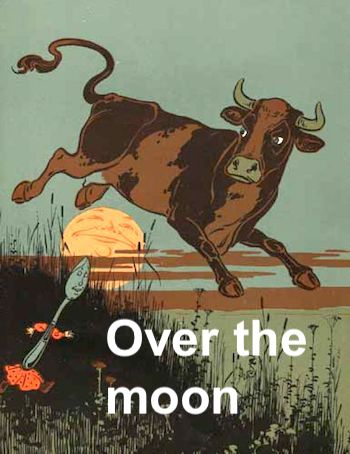 Daily Comment Daily CommentThe Coronavirus and How Political Spin Has Worsened Epidemics
Throughout history, diseases have posed an unsparing test of political leaders and their fidelity to the facts.
By Evan Osnos
|
Painter Francisco Goya was born on March 30th 1746. His unsparing social satire encompassed the humorous, the grotesque and the appalling
The economy's stumble: Air pocket or second dip?
A slump in September prompts thoughts of new stimulus
unsparing
Line breaks: un|spar¦ing
Pronunciation: /ʌnˈspɛːrɪŋ /
lump
(lŭmp)

n.
- An irregularly shaped mass or piece.
- A small cube of sugar.
- Pathology. A swelling or small palpable mass.
- A collection or totality; an aggregate.
- A person regarded as ungainly or dull-witted.
- lumps Informal.
- Severe punishment or treatment, as a beating or an unsparing criticism: take one's lumps.
- One's just deserts; comeuppance: get one's lumps.
- Formed into lumps: lump sugar.
- Not broken or divided into parts: a lump payment.
v., lumped, lump·ing, lumps. v.tr.
- To put together in a single group without discrimination.
- To move with heavy clumsiness.
- To make into lumps.
- To become lumpy.
- To move heavily.
lump in (one's) throat
- A feeling of constriction in the throat caused by emotion.
[Middle English lumpe, of Low German origin, akin to obsolete Dutch lompe.]
lump2 (lŭmp)

tr.v. Informal, lumped, lump·ing, lumps.
To tolerate (what must be endured): like it or lump it.
Like it or lump it
Meaning
Said of an unpleasant outcome that one has no choice but to accept - one can either endure it willingly or endure it with suffering.
[Perhaps from dialectal lump, to look sullen.]
air pocket
n.
A downward air current that causes an aircraft to lose altitude abruptly. Also called air hole.
---
Over the moon
Thrilled, delighted (idiom).
or
Very happy or delighted.
Origin
'Over the moon' has been part of the language for more than a century. It has become more widely used in the past twenty or thirty years, since it was adopted by English football managers when interviewed after 'the boys' managed a victory.
The increased use of televised post-match interviews and hours of studio commentary during the 1970s brought many football managers before the cameras. These days such men are likely to be cultured and erudite Frenchmen or Spaniards. Before that they were usually British ex-footballers who had left schools in the English or Scottish back streets early to play football. It's fair to say that many of them have little interest in the finer points of English grammar.
Two of the best-known English football managers of recent years, who have maintained the English tradition with their engagingly entertaining way of mangling the language, are Ron Atkinson and Terry Venables. The list of quotations from them is long and includes:
"The Spaniards have been reduced to aiming aimless balls into the box." (Atkinson)The humorous magazine Private Eye picked up on these and began publishing them in its Colemanballs column. The name was taken from the sports commentator David Coleman, who could give even the managers a run for their money:
"If you can't stand the heat in the dressing room, get out of the kitchen." (Venables)
"If Glenn Hoddle said one word to his team at half time, it was concentration and focus." (Atkinson)
"I felt a lump in my throat as the ball went in." (Venables)
"Nottingham have now lost six matches in a row without winning." (Coleman)It was really Private Eye's lampooning that made this phrase popular. There is an associated phrase, 'sick as a parrot', which was used when 'the boys' lost. This has a much shorter pedigree and it's quite likely that it was invented by a writer at Private Eye rather than in a football stadium. It certainly gained currency because The Eye always printed the two phrases together in their parodies. 'Sick as a parrot' was probably influenced the the famous Monty Python 'Dead Parrot' sketch, which could be quoted verbatim by many in the UK at the time and which remains one of the most popular sketches ever shown on British TV.
 Well, that's the last thirty years. The actual origin of 'over the moon' is much earlier and, although not widely used before the 1970s, it would have been familiar to all who grew up in Britain in the 20th century. Why, because the source was included, as High Diddle Diddle, in the influential 16th century nursery rhyme collection, Mother Goose's Melody; or Sonnets from the Cradle, circa 1760:
Well, that's the last thirty years. The actual origin of 'over the moon' is much earlier and, although not widely used before the 1970s, it would have been familiar to all who grew up in Britain in the 20th century. Why, because the source was included, as High Diddle Diddle, in the influential 16th century nursery rhyme collection, Mother Goose's Melody; or Sonnets from the Cradle, circa 1760:High diddle diddle,As with most nursery rhymes, the first appearance in print may well post-date the first use by years, centuries even - children didn't write their rhymes down. The text of such rhymes was subject to a 'Chinese whispers' effect over all of that time and, whatever the origin may have been, the version passed down to us is quite probably nonsense and isn't easily interpreted. What is clear is that the 'over the moon' line is a reference to excitement and energy. That's evidenced by one of the earliest allusions to the phrase in print - Charles Molloy's The Coquet, or, The English Chevalier, 1718:
The Cat and the Fiddle,
The Cow jump'd over the Moon,
The little dog laugh'd to see such Craft,
And the Dish ran away with the Spoon.
"Tis he! I know him now: I shall jump over the Moon for Joy!"
沒有留言:
張貼留言